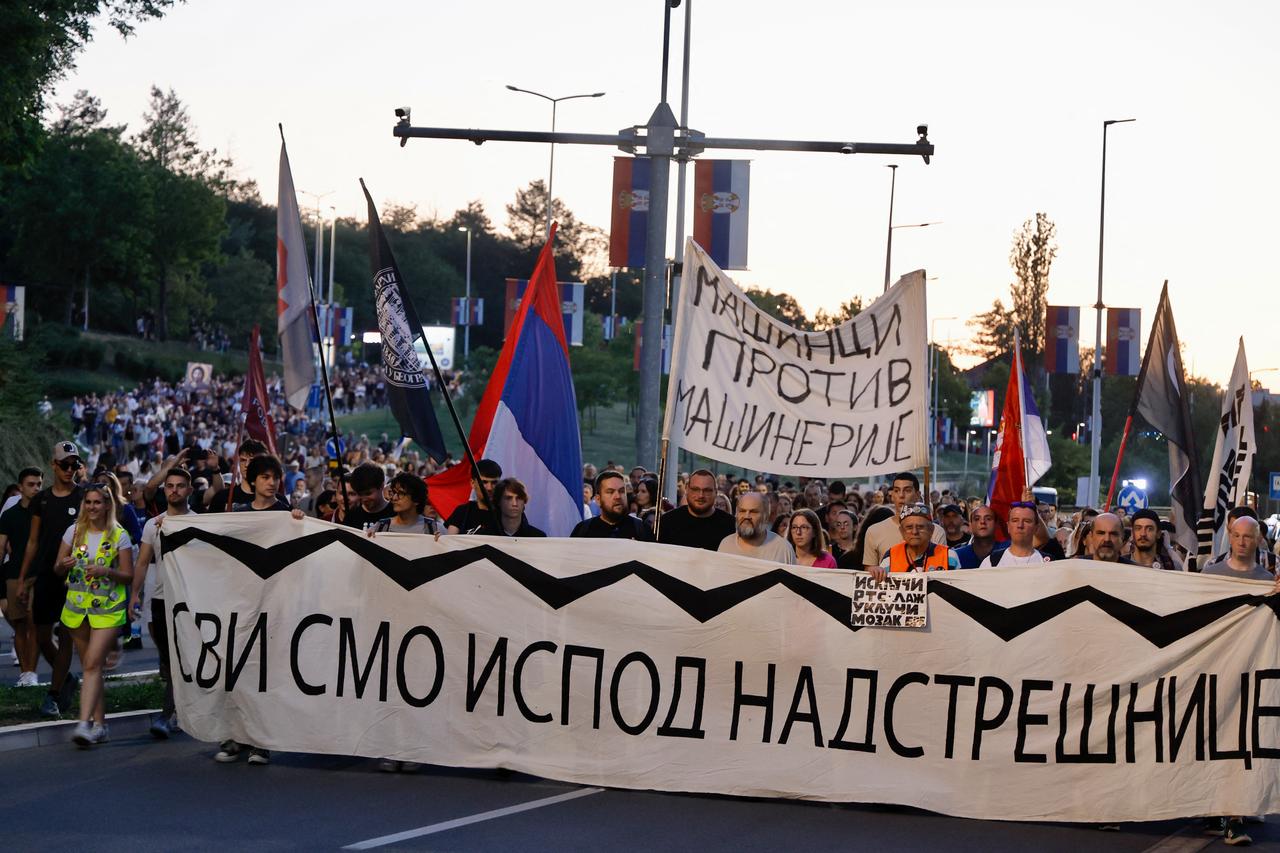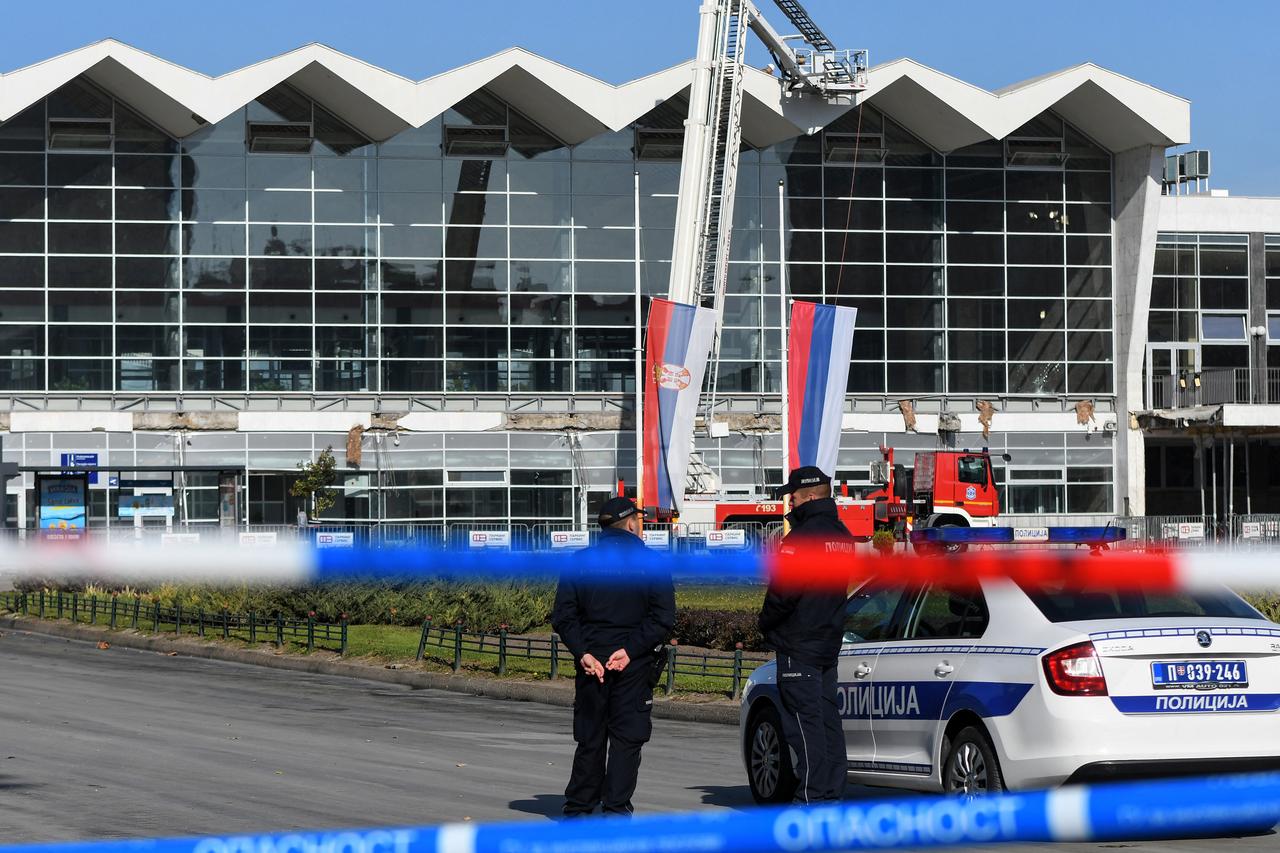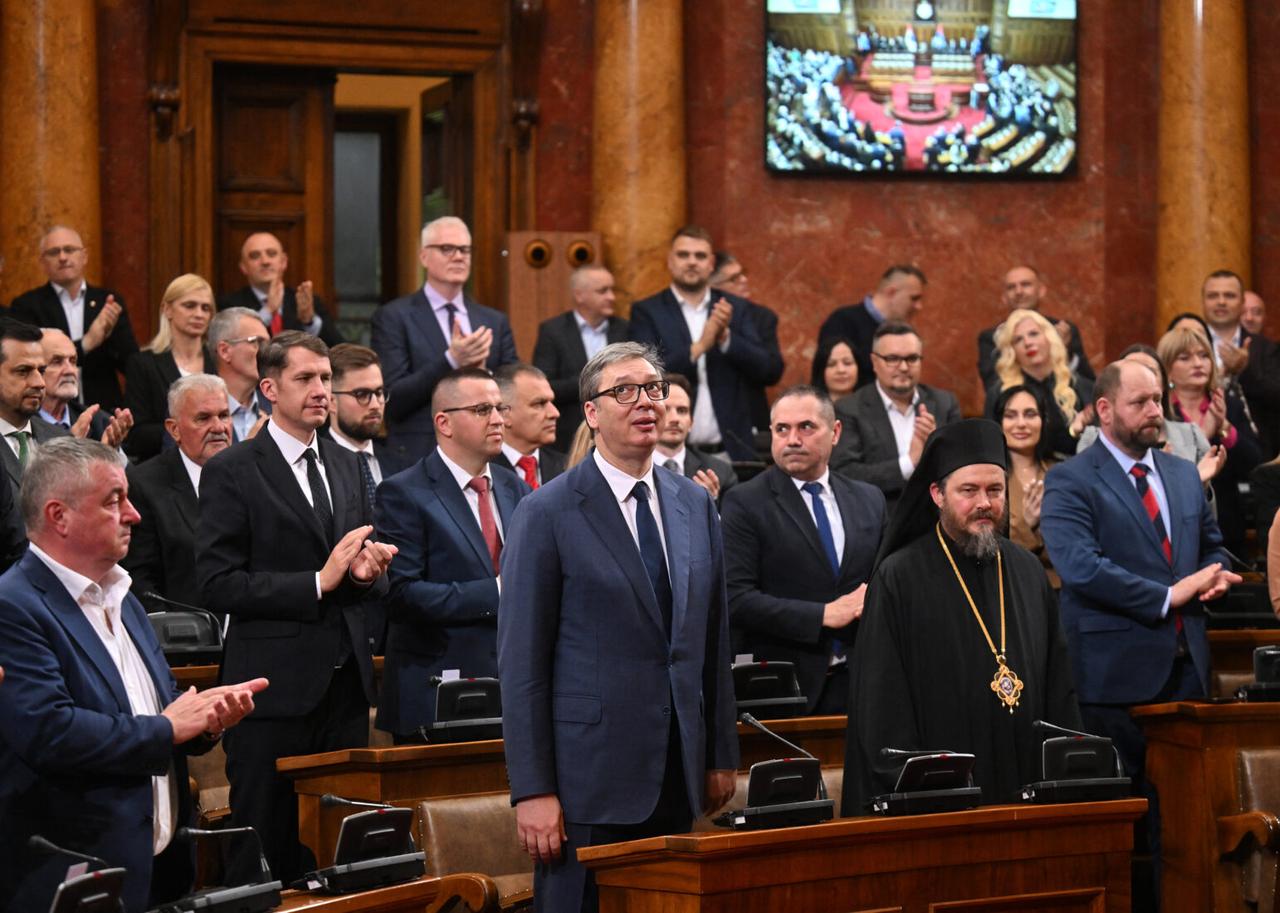
Serbian police on Friday arrested 11 individuals, including former Trade Minister Tomislav Momirovic, in connection with a deadly train station collapse that killed 16 people last November in the northern city of Novi Sad.
Momirovic and 10 others are suspected of corruption related to the renovation of Serbian railway infrastructure along the line leading to the Hungarian border, authorities said.
The concrete canopy of the newly renovated Novi Sad train station collapsed on Nov. 1, 2024, in a disaster widely blamed on systemic corruption and poor oversight. The incident triggered nationwide outrage, a wave of student-led protests, and the resignation of Prime Minister Milos Vucevic.
The Public Prosecutor’s Office in Novi Sad launched an investigation into the fatal accident shortly after the collapse. In February, the Special Prosecutor’s Office for Organized Crime opened a separate probe focused on financial misconduct, leading to Friday’s arrests.
Those detained include former state-run Serbian Railway Infrastructure acting director Nebojsa Surlan, former Construction Minister Goran Vesic’s former assistant Anita Dimoski, and private sector figures such as Nikola Trivic, director and co-owner of a construction firm. Two employees of the Institute for the Protection of Cultural Monuments in Novi Sad, Sinisa Jokic and Veljko Novakovic, were also arrested.

Former minister Vesic, who was among the first officials to resign following the accident, is also wanted in the case. He was hospitalized Thursday and underwent emergency surgery Friday, prosecutors said.
Authorities allege that Momirovic, Vesic and others enabled a Chinese consortium — China Railway International and China Communications Construction (CRI–CCC) — to overcharge the Serbian government by over $115 million. According to the Special Prosecutor’s Office, through manipulated agreements and annexes, CRI–CCC invoiced the Serbian state for $214.1 million, conducted unauthorized additional work worth over $64 million, and made an illegal profit of at least $18.7 million.
France’s Egis and Hungary’s Utiber were also involved in the Novi Sad project, which forms part of the modernization of the rail corridor between Serbia and Hungary.
The arrests came exactly nine months after the station collapse. Massive protests erupted across Serbia on Friday evening to mark the anniversary. Thousands took to the streets in several cities, including Belgrade and Novi Sad, demanding a transparent investigation and early elections.
“It’s a fight against the system, for which human lives are worth less than the amounts thrown around in the public tenders,” said one student protester in Novi Sad.

The tragedy, compounded by the government’s handling of the aftermath, has sparked the largest anti-government demonstrations in Serbia in a quarter-century.
Student-led blockades and occupations of universities and schools continue nationwide. Protesters are demanding the full publication of all documents related to the Chinese-led reconstruction project.
Meanwhile, Serbian President Aleksandar Vucic announced a meeting of the National Security Council for Aug. 2.
Media outlets aligned with Vucic’s government claimed Friday that an attempted coup d’état was underway — portraying the prosecutor’s corruption probe as a politically motivated operation.